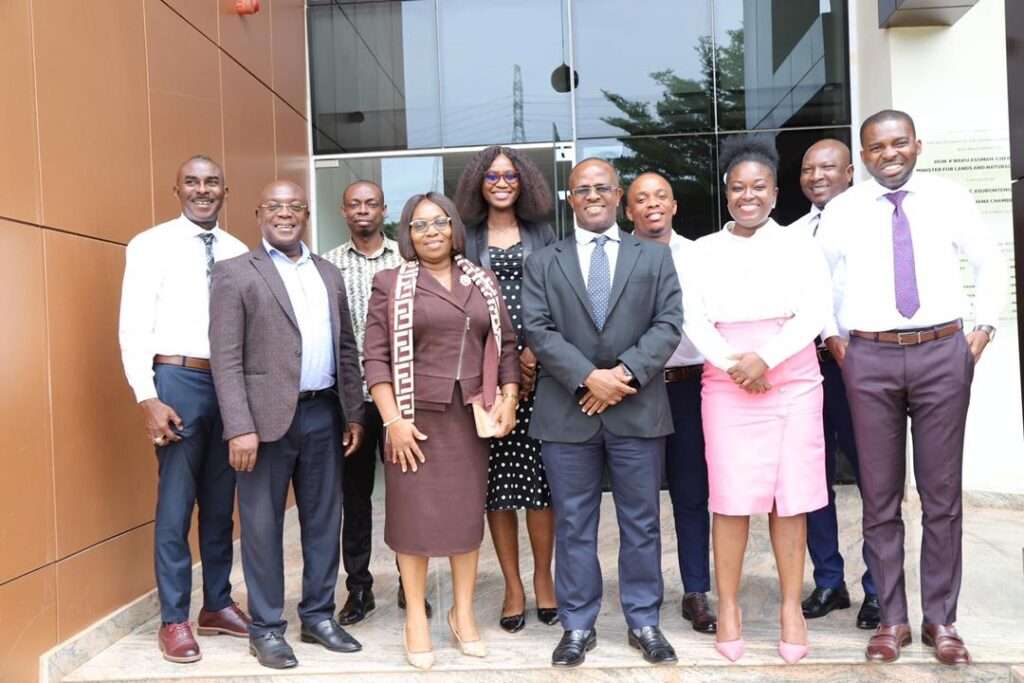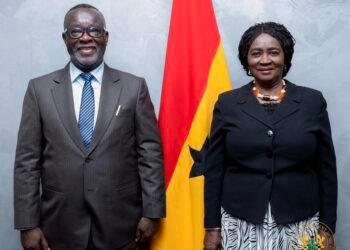In a landmark development for Ghana’s mining sector, the Ghana Chamber of Mines has entered into a Memorandum of Understanding (MoU) with the University of Mines and Technology (UMaT).
This strategic alliance aims to address the critical issue of low gold recovery rates from carbonaceous orebodies, a challenge that has long plagued the industry. Carbonaceous orebodies, characterized by their resistance to conventional processing methods, often result in lower than optimal recovery rates, posing significant economic and operational challenges for miners.
The MoU marks a significant step forward in fostering innovation and capacity building within Ghana’s mining sector. The Ghana Chamber of Mines has pledged a research grant of US$219,318 to UMaT over a three-year period (2024 to 2026), underscoring its commitment to finding sustainable solutions to the problem of low gold recovery rates.
This investment is expected to drive cutting-edge research and development efforts aimed at improving the efficiency of gold extraction from carbonaceous orebodies.
Dr. Sulemanu Koney, CEO of the Ghana Chamber of Mines, highlighted the importance of this partnership, stating, “This is a great day in the annals of the mining industry and the Ghana Chamber of Mines. We are optimistic that this support will produce results that address the perennial low recovery associated with carbonaceous orebodies.”
Dr. Sulemanu Koney emphasized the need for recoveries to be key to the industry’s success, noting that conventional methods often yield only about 55% recovery from such orebodies, which is below par and uneconomical.
The partnership between the Ghana Chamber of Mines and UMaT is not just about technological advancements; it also focuses on capacity building. The initiative aims to support the completion of studies by professors at UMaT, enabling more effective recovery methods. Additionally, the partnership will facilitate the training of three PhD students and other master’s program participants, enhancing the skills and knowledge base within the mining sector.
Professor Richard Kwasi Amankwah, Vice-Chancellor of UMaT, expressed gratitude for the Chamber’s support, highlighting the university’s commitment to addressing the challenges posed by carbonaceous orebodies. He noted that the partnership would enable the scaling up of research efforts, potentially leading to the adoption of new technologies that could revolutionize the mining industry.
“We have some ores in Takwa, so we call them the Takweian rocks. But the kind of ore that we have in there, some of them are very refractory and very difficult to treat. Over the years, we’ve had several kinds of processes that have come up to treat these difficult-to-treat ores, but the environmental challenges associated with these methods caused them to go down.”
Professor Richard Kwasi Amankwah, Vice-Chancellor of UMaT
Game-Changer for the Minerals Industry

The partnership is seen as a game-changer for the minerals industry, with potential implications far beyond Ghana. Professor Amankwah outlined plans to establish a pilot gold processing plant at UMaT, providing practical experience for students and contributing to the broader goal of improving recovery rates. This initiative is expected to have a transformative impact on the industry, offering a viable solution to the challenges posed by carbonaceous orebodies.
The Ghana Chamber of Mines’ commitment to education and research extends beyond this latest partnership. In 2019, the Chamber established a Tertiary Education Fund (TEF) to support teaching and learning in tertiary institutions, committing over $2 million to UMaT in its first phase (2019 to 2023).
This support was renewed for another five years, with plans to commit over $2 million during this period. The Chamber’s ongoing investment in UMaT reflects its recognition of the critical role of education and research in driving innovation and growth within the mining sector.
The partnership between the Ghana Chamber of Mines and UMaT represents a significant milestone in the quest to enhance gold recovery rates from carbonaceous orebodies. By combining financial support with a focus on research and capacity building, this initiative holds the promise of transforming the mining industry in Ghana and beyond. As the partnership unfolds, it will be closely watched by stakeholders in the mining sector, eager to see the tangible benefits that this collaboration will bring to the industry.
READ ALSO: Voter Trends Pose Threat to Incumbent Party’s Majority in Parliament























